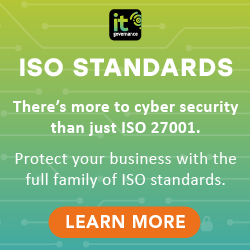It’s important to understand why all CVs tend to look the same
With all the competition for jobs nowadays many people are looking for ways to make their CV stand out. There are various ways in which people have tried to do this, from fancy paper and letterheads to brightly coloured fonts and large lettering. However, if you are thinking of doing something to make your CV different, make sure you understand the risks first.
There is a reason CVs typically all look the same: that is what employers are looking for. CVs are designed to have a lot of information condensed into a small space, in an easy to read manner for recruiters. They are functional documents, and employers often take the opinion that if your CV needs to be ‘blinged up’ then the content within is lacking.
It is therefore preferable to spend more time working on the content of your CV than its appearance – ultimately, no matter how beautiful you have made the document, if your experience or skills are not what the recruiter is looking for, you won’t get the job.
Further than that, traditional CVs permit the content to be found on job sites when recruiters search for certain skills. If you add too much to the CV to make it look better, you run the risk of it being too difficult to read, especially online.
It goes without saying that the last thing any applicant wants to do is make their CV unreadable, as it will be a guarantee that you won’t get the job – even if you feel like it was created for your skills.
With all this being said, though, there may be some scenarios when a unique CV can be beneficial. The situations are rather rare, but one example could be a job in design, where originality and a creative flair is a benefit.
In such a situation, saying you are creative is not going to be as reassuring as physically showing that creativity, and the CV is the first chance of showing a recruiter what you can do.
You can also think outside of the box in getting your CV distributed and eye-catching. For instance, you should always have your traditional, ‘plain’ CV, in a .doc format for cross-compatibility, but there’s nothing to stop you putting another CV on your own Website or a social network.
Within the flexibility of your own site, you can do almost anything to your CV without risking it being obnoxious like it would be on a recruiter’s desk.
Similarly, you can use relevant forums to get involved in discussions related to your expertise and include your CV in your profile. Any of these creative methods are yours to inject as much flair as you want.
It is also important to remember though that the Internet does not replace the traditional CV. It makes a good accompaniment and can help you reach more people with what you have to offer but, for the time being at least, you still need a traditional ‘plain’ CV that matches roughly the same design as everyone else’s.
One way of looking at it is to have two CVs: your regular one that you would email or post to recruiters and agents, and your online one that you want to make eye-catching so people are more inclined to read it.
Sarah Jacob is editor in chief at EmptyLemon, one of the UK’s leading IT jobs boards.


